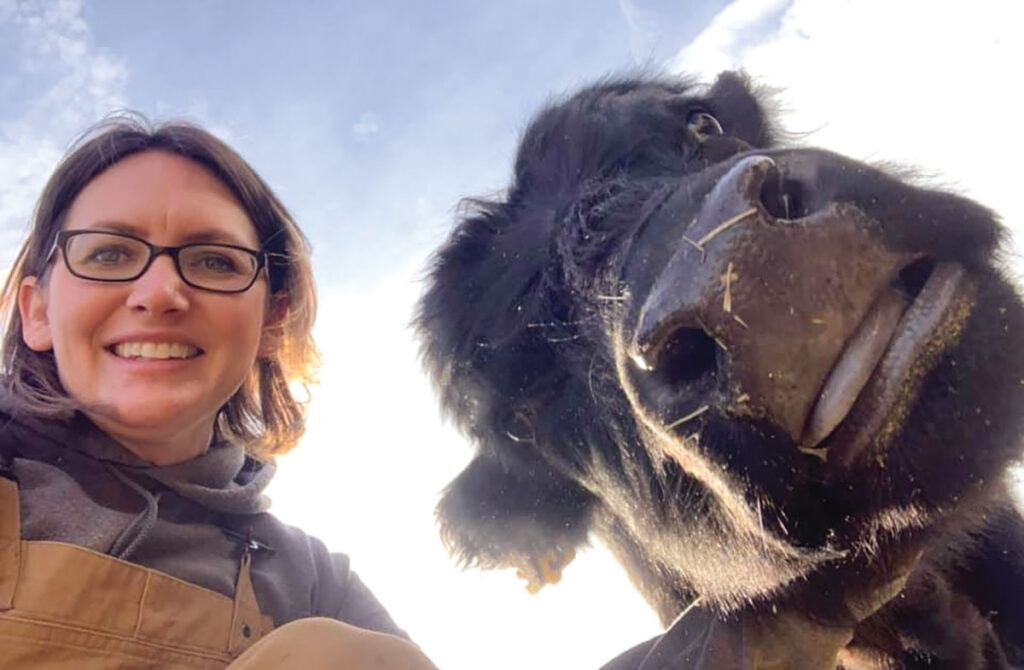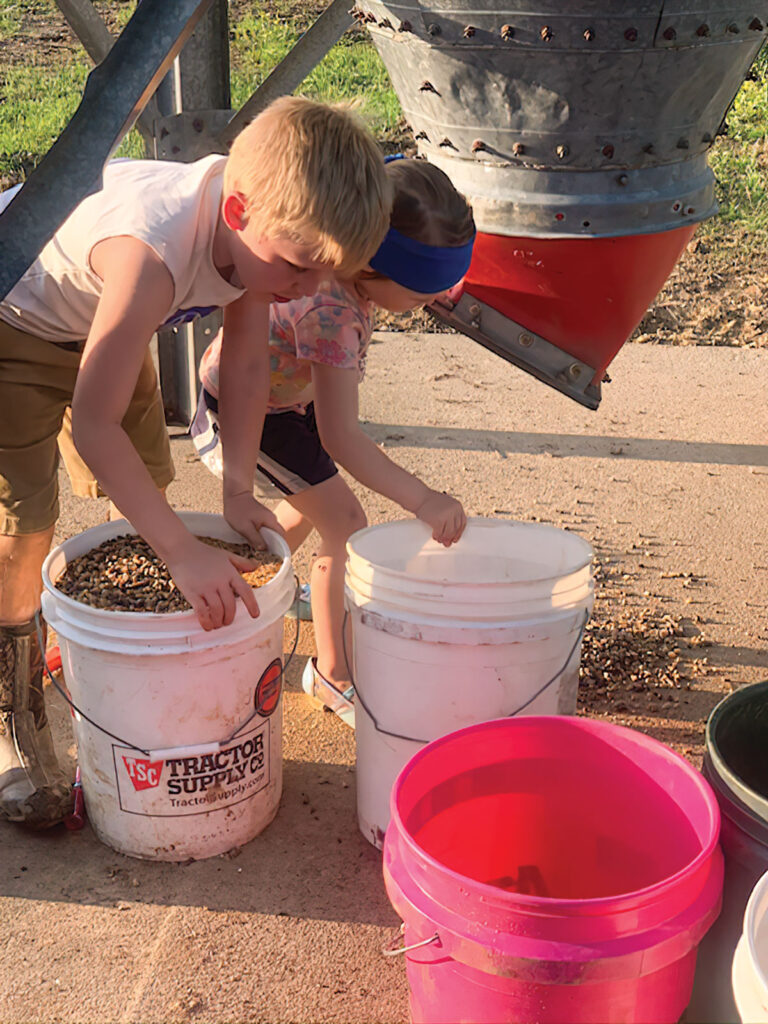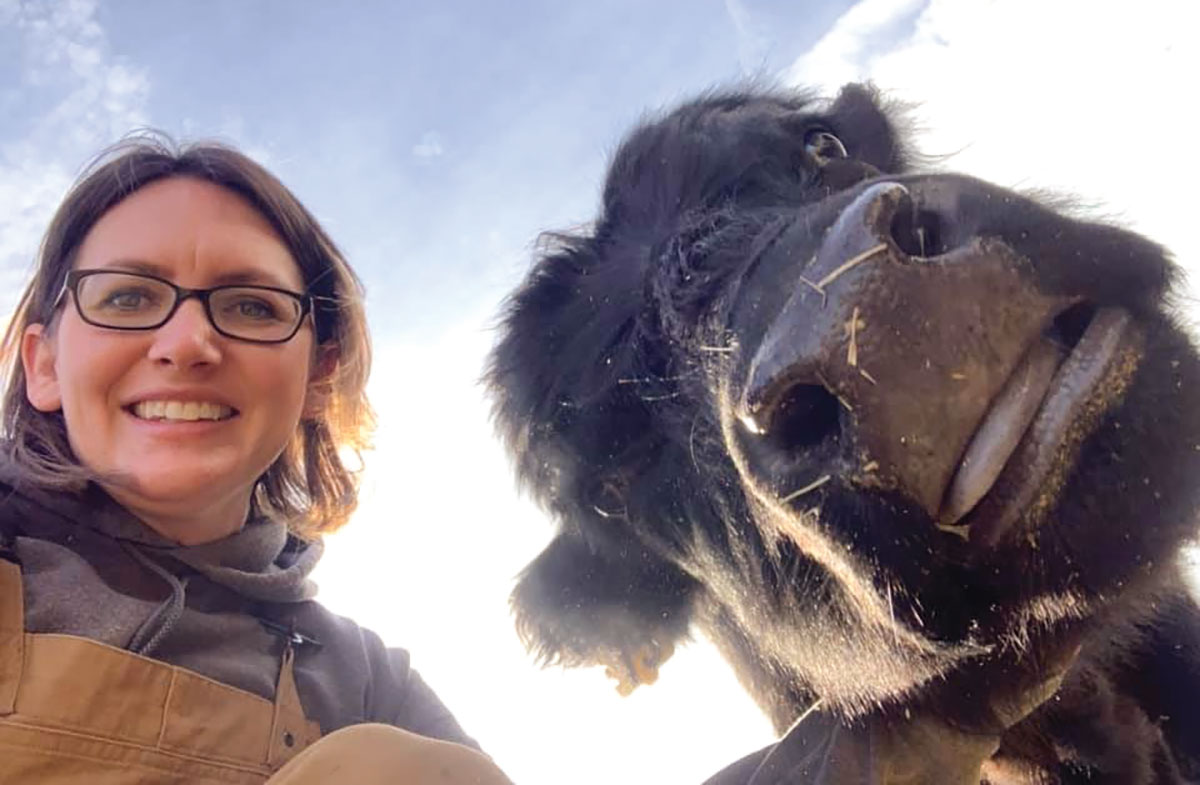
Pass Farm began with a few acres and a dream of owning a farm
HARTFORD, ARK. – Many farms have generational histories. Fortunately, some brave the daunting task of founding a first-generation farm. One family in Hartford, Ark., is doing just that. Jared and Michelle Pass met while working at Southern Arkansas University’s school farm. Neither was raised on a farm but both went to college to pursue agriculture degrees. They gained cattle farming experience with Michelle also working for a local veterinarian and competing with college rodeo team.
Jared was raised in Taylor, Ark., where he enjoyed spending time with his Grandpa Reynolds. There he gained his interest in farming joining FFA and showing hogs. Jared was also highly involved in the FFA forestry and electricity teams.
Michelle, on the other hand, had an early and still ongoing love affair with horses. She is very appreciative of Margaret Wheeler, her 4-H leader who taught her to ride and take care of Aprils Fire for five years, while Michelle showed chickens and saved money from their sale. By age 13, Michelle had saved $1,200 and bought her beloved horse, paying for its upkeep with whatever she earned from selling her show animals. She was a member of the 4-H horse judging team.
Jared was finishing college and Michelle working on a graduate degree when the couple purchased 1 acre in Cedarville. They built a home through the USDA Rural Development Self-Help Program. They later acquired 14 adjoining acres through owner financing. The couple wanted to own cattle but land was very expensive and they needed more.
“God blessed us all along the way because we couldn’t have done all these things without Him,” Michelle explained. “We want to teach our kids to set good goals, use all resources available and never give up. We’ve worked hard for the last 15 years and it’s all starting to slowly come together.”
Jared is a licensed plumber and owns Precision Well Service, where he maintains gas wells. Michelle is a licensed professional counselor, as well as a marriage and family therapist and owns her own private practice, Natural Connections LLC. At the same time, they are raising a family of three active children: sons Brody, 13, and Blaine, 9, as well as daughter Bristol, 6. All are involved in multiple activities, sports and 4-H.
When searching for property, the couple spied an ad for a 200-acre property they believed they couldn’t afford but the place had nice land and multiple water resources, just what they were searching for.
They felt God had led them to this farm and were able to work with the owner, Jim Trace by caring for his cattle herd in exchange for the daily farm management experience that would help them qualify for a FSA Beginning and Rancher loan.
They founded Pass Farms in hopes of being a generational family farm. They recently purchased an additional 50 acres and the original farm home to bring the farm back to its original size. Jared’s parents now reside there and the kids love having their grandparents next door.
Jared and Michelle eventually purchased Jim’s cows, plus more, to reach their herd size of 65 commercial Angus females bred by a SimAngus bull, and two registered Balancers producing both red and black calves. Although the bulls run with the cows all of the time, birthing naturally clusters in the fall and spring. Calves are weaned at 6 months and retained for additional 45 days as they become accustomed to grain while being carefully scrutinized for soundness and health. Any culls, including aging cows, and those that are temperamental or no longer producing strong calves, are sold.

“With young children on the farm as well as ourselves, safety is essential and immediately removing any headstrong animal is a must,” Jared said.
Efficient is necessary for the busy family. Consequently, they sell their calves to a stocker, avoiding the extra time, stress and complications of private treaty and auction sales.
“Our goal, like quality-centered cattlemen, is to produce genetically strong, healthy and efficient calves that meet the highest standards,” Jared said.
Part of reaching that goal is a vigorous health protocol, including a vaccination regimen, deworming and tagging, as well as treating for flies with both sprays and rubs. Additionally, Pass Farms uses supplemented summer mineral with fly protection, thus alternating minerals according to season. Because one of their biggest concerns is preventing an outbreak of anaplasmosis, their mineral also contains medication to ward off the disease.
“We want to continually improve our herd and our management practices so we can be successful because being a profitable farmer is so challenging,” Michelle said.
Jared and Michelle have begun reclaiming and improving the overgrown land through new land management practices and improved fencing in order to begin an intensive rotational grazing system, a system unfamiliar to them. They consult local experts from the NRCS, including Jane Lowry, for specific recommendations and procedures. Doug and Ann Russell and other helpful and experienced local farmers advise them about raising, caring for and selling cattle. Jared and Michelle felt honored by receiving the 2017 Sebastian County Farm Family of the Year Award in recognition of their hard work.
Many revitalization fronts are being attacked at the same time. One is land productivity. Thus far they have been able to supply all of their own hay most years but realize the ground is not as productive as it should be. Last spring, they applied fertilizer and lime for the first time. This fall, they over seeded with clover to increase grass protein content. Pass Farms’ water sources are ponds, a creek and three wells. Current water projects include fencing off ponds for limited, a high traffic cattle entry and setting up a tank system using well water in preparation for rotational grazing. They hope for better quality forage, healthier land and cattle, and more efficient resource use as part of a herd expansion plan on the land they already own.
“We have a lot going on right now, but everything should come together in the next couple of years,” Jared said. “One of my favorite quotes comes from Teddy Roosevelt who said the only man who never makes a mistake is the man who never does anything. We know we will make mistakes along the way but we continue to learn, work hard and persist.”
While Jared and Michelle may not have been raised on farms, they appreciate the lifestyle and the impact it will have on their children as they model what hard work and the results of that ethic. Part of fulfilling their early dream of owning a farm is its resemblance to Old MacDonald’s farm. Their menagerie of animals includes cattle, goats, chickens, ducks, turkeys, horses, dogs and cats. They’ve shown cattle, hogs, goats and poultry at the county fair and want to rodeo in the near future while being actively involved in the agricultural industry.
“Our early experiences taught us knowledge is power and networking with those who are truly interested in helping us become successful was critical if we were ever going to become the farmers we wanted to be,” Michelle said. “By networking and meeting others we’ve formed great friendships and gained significant knowledge.”
The Pass family appreciates all those who have helped and want to be good advocates so future generations will be able to enjoy farming and the rural lifestyle. The couple has participated in numerous advocacy programs. Michelle was a member of the two-year Lead Arkansas Rural Agricultural Leadership Program, covering various state-wide aspects of agriculture, advocacy and leadership. Their active involvement with in Farm Bureau began when they lived in Crawford County where James McGee helped them become part of Crawford County Young Farmers and Ranchers Committee. That led to state-level involvement as state committee members and traveled to Washington, D.C., to speak with legislators about agriculture issues. Currently, Michelle is a member of the Farm Bureau Rural Health and Safety Committee.
When asked about how much sleep they get, Jared laughed and said, “Not much, but we wouldn’t change a thing.”







